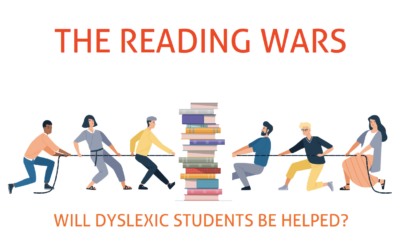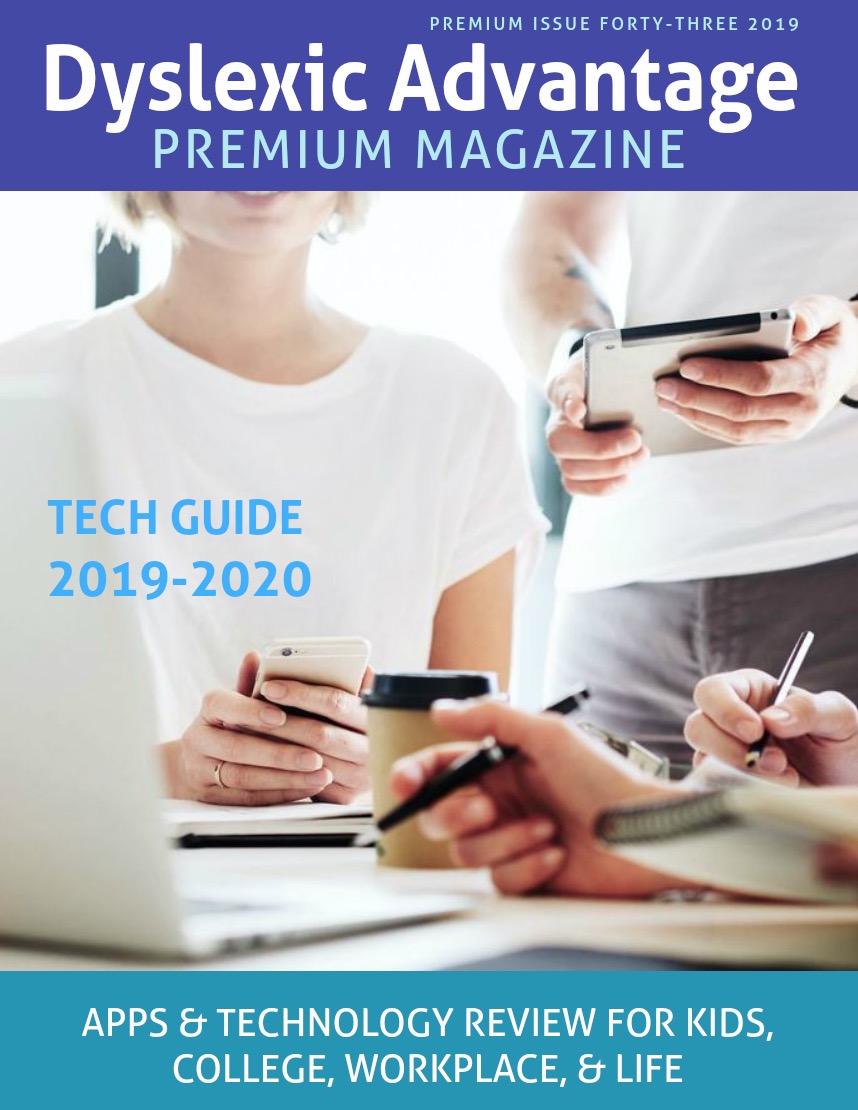"Over the long term in reading, the lowest performing students – those readers who struggle the most – have made no progress from the first NAEP administration almost 30 years ago..." There are discouraging reports from the 2019 NAEP Reading Assessment. NAEP stands...
Strategies for Addressing Math Mistakes [Premium]
Working memory mistakes in math include mistakes such as losing place in problems, errors due to missed steps or key information, calculation errors like near-misses or reversed digits, directional errors, or procedural errors like errors of grouping or carrying. In the video below, teacher Leah Alcala shares how she decided to change how she graded math mistakes in her class. Instead of putting a grade, she highlights mistakes and then gives examples of mistakes and the correct answers in class. Students have a chance to retake their test and better their final scores. This clever approach takes advantage of memory as well as intrinsic motivation and boosts what students learn in math by the time they complete her class. Working memory is such a common […]
[PREMIUM] The Auditory Friendly Classroom
ENVIRONMENT – Reduce background noise as much as possible (carpeted, tennis balls on chair legs, closed doors) – Preferential seating for students – away from doors, windows, noisy heaters, overhead projectors, pencil sharpeners, noisy classmates – Allow students to wear musicians earplugs while doing quiet work. – FM Speaker or Headset FOR STUDENTS – Sit at the front of the room with a good view of the teacher. – Request a classroom note-taker and or ask whether you can record classes. – Many students don’t realize how much they may miss by ear alone. – Choose seats away from noise sources like open doors, noisy classmates, heaters, or overhead projectors. – Use an FM speaker or headset which is known to improve classroom learning […]
Dyslexic Advantage Premium TECH Guide 2019-2020
This issue features our largest Premium TECH Guide ever at 54 pages! Become a Premium subscriber at just $5 per month. Individual issues can also be purchased through Dyslexic Advantage apps in iTunes or Google Play. Dyslexic Advantage Premium Apps review includes the best dyslexia apps for iOS and Android in the areas of basic reading, phonological awareness and spelling, reading fluency, free and low cost resources for audiobooks and ebooks, ways to listen including podcasts, read to me books, scanning pens, best apps for writing, note-taking, scanning, and spelling for adult users, best apps for organization and productivity, math, and social and emotional health.
[PREMIUM] Encouraging Reluctant Talkers
Although we’ve spoken about verbally-gifted dyslexics, there are also many who find speaking a challenge. HOW CAN RELUCTANT TALKERS BE ENCOURAGED TO TALK? AT HOME: Create a positive no-stress environment for talking and don’t worry about filling in gaps if and when they occur. There can be a wide variety of reasons why dyslexic children are reluctant to talk–but one thing is for sure, things will only get easier with practice. As children get older, they are more self-conscious about saying the wrong words, stammers, or pauses, so all the more reason for making the time and find ways to give them more confidence. – Talk in the car. See if talking in the car is a good place to get your child talking on […]
When Spelling Words Don’t Stick
From this book from Nancy Mather and colleagues, a 5th grader was shown a word from her adapted spelling list, then asked to write it from memory. Needless to say, the exercise was quite frustrating for the student. From the authors: "Her teacher next showed Nalan the...
How to Not Hate and Dread High School
It's not easy. There are lots of reasons to hate or at least strongly dislike high school. What if you've done what you could to self-advocate and educate your teachers and classmates, but can't help but dread going back to school every day? Here are some tips from...
[PREMIUM] Letter for Teachers
As the school year starts, it’s time to open up the word processing program and get to work on a letter for your student’s teachers. Letters should be customized for the particular class, subject, grade, and student’s needs. Here’s a nice example from Trish: “You have our son, *** in your second period AP Lang class. I wanted to give you a heads up that he has an IEP with accommodations. He has been professionally diagnosed by licensed psychologists as intellectually gifted, with dyslexia and dysgraphia. Dyslexia is often referred to as an invisible disability, and ____ has in the past had either his intelligence or his disabilities underestimated, as they can camouflage each other. He is an extremely hard worker, tries hard to overcome […]
[PREMIUM] What is Dyslexia? – Fast Facts for Teachers
THE MOST COMMON LEARNING DIFFERENCE Dyslexia is the most common learning difference, seen in up to 15-20% of the population. Dyslexia tends to run in families, but it can vary a great deal from family member to family member. IT’S NOT JUST READING Reading challenges are a central feature of dyslexia, but dyslexia-related brain differences have been detected in children before they are reading age and with appropriate intervention, reading improves significantly. There are learning strengths also associated with dyslexia that are helpful to know for educational reasons as well as future careers. FAST FACTS FOR TEACHERS #1. Dyslexic students are smart. Dyslexic students have average or higher than average intelligence. Are they receiving adequate challenge and opportunity in their daily work? Could you be […]
Sight Words / Tricky Words [Premium]
Sight words are words that must be memorized by sight, rather than being sounded out phonetically. Sight words are important to learn because once children are able to read the most common 100 sight words, they can read up to 50% of most children’s literature. Mastery of the top 300 words, gives students access to 75% of what is printed in most children’s literature. It’s especially important for dyslexic students to learn their sight words with multisensory strategies because sight words account for many of the most commonly misspelled words in writing. You may hear sight words referred to by many names, such as Dolch words, Fry words, high frequency, or even Orton-Gillingham red words. The most important thing to know is that these words […]
GETTING PAST ANGER
If you meet Henry Winkler today, one of the last words to come to mind would be the word "anger." Yet anger is what Henry battled with for years because of his experiences in school before dyslexia was recognized.... Henry wasn't allowed to graduate with his class at...
How to Help With the Social and Emotional Side of Dyslexia
Dr. Michael Ryan is a Michigan Clinical Psychologist who developed one of the first clinical programs for LD students at Colorado State University and he spoke at our first Dyslexic Advantage conference. From his writing at LDOnline and the IDA: How can parents and...


![Strategies for Addressing Math Mistakes [Premium]](https://www.dyslexicadvantage.org/wp-content/uploads/2019/08/math-dyslexia-shutterstock.png)
![[PREMIUM] The Auditory Friendly Classroom](https://www.dyslexicadvantage.org/wp-content/uploads/2019/07/auditory.jpg)

![[PREMIUM] Encouraging Reluctant Talkers](https://www.dyslexicadvantage.org/wp-content/uploads/2019/05/shutterstock_529217503.jpg)


![[PREMIUM] Letter for Teachers](https://www.dyslexicadvantage.org/wp-content/uploads/2018/12/Screen-Shot-2019-08-30-at-8.57.12-AM.jpg)
![[PREMIUM] What is Dyslexia? – Fast Facts for Teachers](https://www.dyslexicadvantage.org/wp-content/uploads/2018/11/Screen-Shot-2019-08-30-at-9.15.35-AM.jpg)
![Sight Words / Tricky Words [Premium]](https://www.dyslexicadvantage.org/wp-content/uploads/2018/10/Screen-Shot-2019-08-30-at-8.46.26-AM.jpg)















